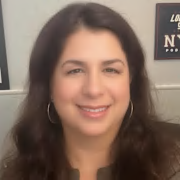Mike Kafka Explains Why He Likes to Be the "Eye in the Sky"

There are pros and cons for an NFL assistant coach regarding whether he works from the team's sideline or the press box.
The biggest pro is being a part of the moment and the emotion of the game, in good times and bad. That, of course, dissipates somewhat when a coach chooses to work from the press box, though being that eye in the sky can also be beneficial in that it allows the coach to view All-22 personnel in real-time.
For New York Giants offensive coordinator Mike Kafka, there was never any question about where he would station himself on game day. Rather than stay along the sideline, the first-year offensive coordinator chose to sit in the press box, which has worked out fine for him in more ways than one.
"Being in the booth was definitely different," he said Wednesday. "I spent the last several years on the field. Not good or (bad) – I think they’re just different experiences.
"Down on the field, you get a little bit more of a feel of the players, being right next to them and being able to communicate it. When you’re up in the booth, you get a bigger picture – kind of a bird’s-eye view of the field."
Kafka doesn't frown upon those that choose to work from the sideline--defensive coordinator Wink Martindale and special teams coordinator Thomas McGaughey have opted for the sideline for years.
"You have to have trust both ways. Whether you’re on the field, trust upstairs in the booth, and when you’re in the booth, trust downstairs on the field to get the right information," Kafka said.
Another advantage that Kafka has found to be true in working from the booth is that he is removed from some of the emotions that could prompt a rash decision and can think with a clearer head and minimal distractions.
"You can think a little bit," he said. "You have more time to think and kind of spread out. You have an area there to write some notes down. You don’t have that on the field, a desk, and all that. It’s definitely quieter, so you don’t have to worry about the crowd noise in between drives and stuff. That’s probably the two major differences."
Of course, being a good communicator is a challenge of being up in the booth. Kafka, for example, can't get with the offense on the sideline to draw up a play on the whiteboard or review a photograph of what the opposing team did.
According to Kafka, the time to dive into that part of the game is during practice when all the coaches are on the field with the players.
"Yeah, those are things that you practice in training camp and OTAs, the pronunciation of the plays and working through how I’m going to communicate this number or this set of plays and how the quarterback wants to hear it," he said.
"That’s all that matters if I’m talking to the quarterback, that he gets the information quickly, concisely, he can hear it, and that way he can relay that information."
The arrangement has worked for the Giants, who are getting ready to face the Philadelphia Eagles on Saturday in the Divisional playoff round. Kafka credits quarterback Daniel Jones for making it that way.
"Daniel does a great job with the headset and communicating to the huddle, communicating what we want to get rolling with on offense," he said.
Join the Giants Country Community
- Sign up for our FREE digest newsletter
- Follow and like us on Facebook
- Submit your questions for our mailbag
- Check out the new Giants Country YouTube Channel.
- Listen and subscribe to the daily LockedOn Giants podcast.
- Subscribe and like the LockedOn Giants YouTube Channel
- Sign up for our FREE message board forums
- Get your Giants tickets today from SI Tickets!
